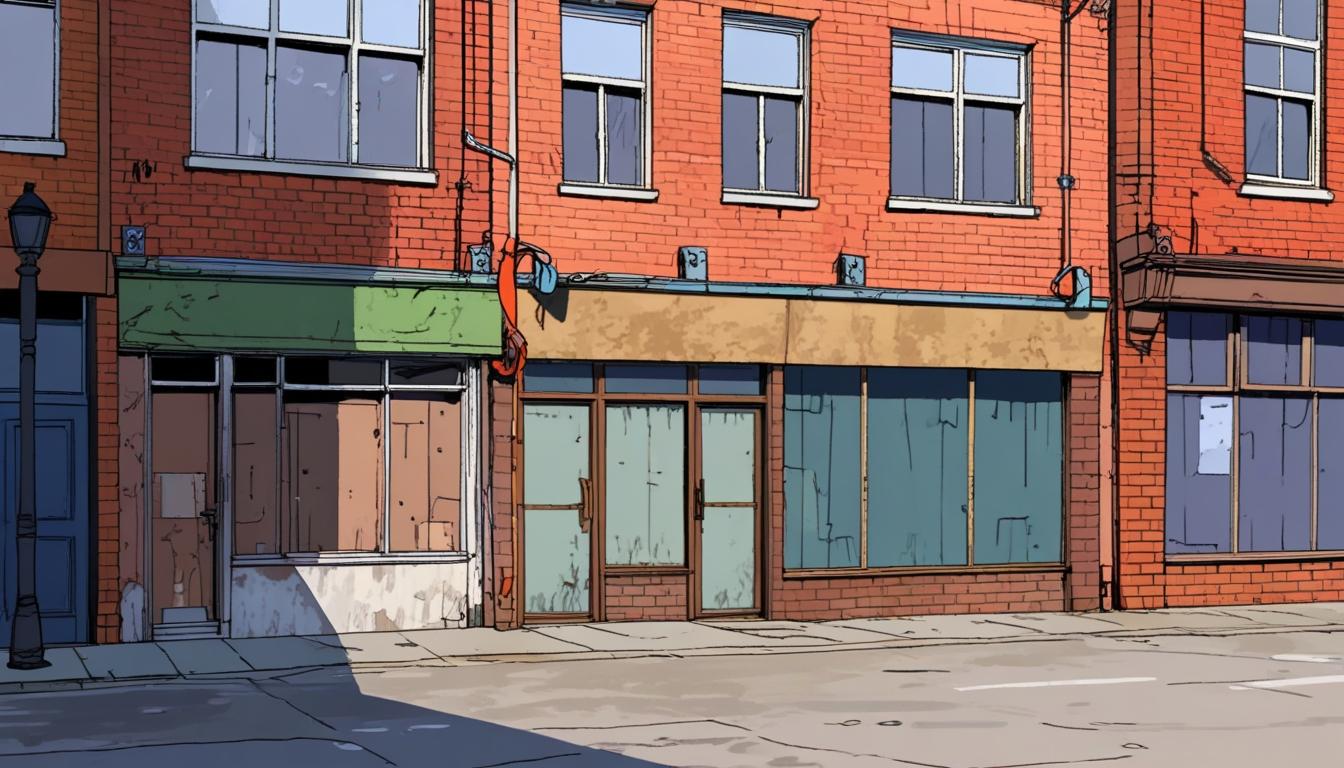Freeman Street in Grimsby, Lincolnshire, has become emblematic of the decline of the British High Street, mirroring a broader trend observed across the United Kingdom. Once bustling with activity and trade, the street is now predominantly marked by boarded-up shops and a noticeable absence of foot traffic. This stark transition has been captured in recent reports highlighting the area’s transformation into a shell of its former self.
The situation on Freeman Street is particularly alarming, with over 50 shops closed within a mere 250-metre stretch. Empty storefronts now largely outnumber the remaining establishments, which predominantly consist of vape shops, barbers, betting shops, and fast food outlets. Notably, one former pizza takeaway has remained unoccupied for more than 25 years, signalling a long-term decline in local business viability. Local residents have expressed their frustrations, noting not only the loss of shops but also an increase in social issues, including drug use and incidents of violence.
Marie Moore, a 57-year-old lifelong resident of Freeman Street, reflected on the drastic changes over the decades. She reminisced, saying, "As a kid, we'd come here every Saturday... you couldn't move for stalls and friendly faces." Today, she underscores her dismay at the prevalence of charity shops and Turkish barbers dominating the street scene.
Another resident, Ben Watson, 37, echoed these sentiments, describing Freeman Street as resembling a "ghost high street." He commented on the stark reality for businesses, stating, "If you're after fast food or a haircut, you're alright. But there's nothing else." Watson further noted concerning aspects of street life, mentioning "a lot of dossers and homeless people begging for money," along with visible signs of neglect, such as needles on the ground.
The economic challenges in Grimsby are reflected in statistics revealing that more than half of adults in the area rely on benefits, with certain wards reporting the highest youth unemployment rates in the country. Specifically, the East Marsh and Port ward has seen alarming figures, drawing attention to the need for economic intervention.
However, amidst these challenges, there are glimmers of resilience. Last year, Grimsby earned the title of home to the cheapest fish and chips in the UK, with Matthews Chippy selling meals for just £3—a third lower than the national average price. Owner Stan Matthews explained his motivation, stating he aimed to provide affordable meals for the local community.
Moreover, brighter prospects have been hinted at with a planned £28.2 million redevelopment in the town, focusing on renovations to the waterfront area, a shopping centre, and improved infrastructure including a new bridge. These plans aim to rejuvenate Grimsby and possibly restore some of its former vibrancy, though the success of such initiatives remains to be seen.
As Grimsby grapples with its current socio-economic landscape, the future of Freeman Street remains uncertain, balancing between the pressing need for revitalisation and the ongoing challenges of urban decline.
Source: Noah Wire Services
